The Catalyst Killing - [41]
I liked Henry Alfred Lien better than expected, even though he was as taciturn as I had imagined he would be. At close quarters, his voice reminded me of a tractor; it was loud, slow and monotone, and made steady, solid progress. He seemed to be a reasonably well-read and cultured man, and switched promptly from his Valdres dialect to a more standard pronunciation.
Stepping into Henry Alfred Lien’s house was like stepping back into the interwar period. The furniture was wooden and dated from around the time of the First World War. The most recent family photograph on the wall was a black and white picture of a far younger Henry Alfred Lien, together with a very serious wife, a son and two daughters. The photograph was dated 1937. It was hanging below an old cuckoo clock that sang out when the clock struck one, just as we were sitting down at the table.
The table was set for coffee and cake for two, and I could see no sign of any other inhabitants. My host almost immediately disappeared into the kitchen and I used the time to have a quick look around his living room. It gave the impression that the elderly farmer had little social engagement and no political views of any sort. There was nothing on the walls or the tables to indicate his fascist past. I noted with some interest that he did not appear to be a hunter. There were no trophies or weapons to be seen.
Henry Alfred Lien returned with some sugar, poured the coffee and then sat down and looked at me in anticipation.
The interview was problematic from the outset. Henry Alfred Lien had already answered negatively to the routine questions on the telephone. With a poker face and booming voice, he still denied any knowledge of or contact with either Marie Morgenstierne or Falko Reinhardt. He only knew their names from the newspapers. He had been at home on the night that Falko Reinhardt had disappeared, and, unfortunately, he had been alone. The farmer’s wife had died many years ago and the seasonal workers on the farm had been given the weekend off. It had been a very unpleasant echo from the past to be unfairly suspected of being in some way involved with his death or abduction.
Henry Alfred Lien was obviously prepared for my visit. From his pocket, he produced a lie detector certificate and repeated once again that he was innocent. He was extremely grateful that his name had been kept out of the papers at the time, and would take dramatic action if anything about the case was now to appear in print. Gossip travelled quickly in these parts, and he had felt ostracized in the months following Reinhardt’s disappearance.
As far as Marie Morgenstierne was concerned, Henry Alfred Lien claimed to have been at home on the evening she was shot, but once again he had no witnesses to confirm this.
A couple of the workers would be able to confirm that he was here when they went home at six o’clock, and again when they returned at eight o’clock the following morning. However, in addition to a small tractor, he owned a large old Volvo and could have driven to and from Oslo within that space of time. So the opportunity was there, but as yet, no motive.
Henry Alfred Lien paused for thought when I asked if he, as a local, had any idea of what might have caused Falko Reinhardt’s disappearance. He emptied his coffee cup and finished a biscuit before his tractor voice rolled calmly on.
‘The mountain has taken lives in mysterious ways before, certainly if one is to believe an old story… So I should imagine that perhaps something similar happened here, even though it is hard to understand how. But I’m not sure that you, a young man from Oslo, would be interested in tales?’
He sat still and looked at me askance, then rattled on once I had said that I was interested in anything that might cast light on the mystery. This time he trundled on for some time without stopping,
‘Once long ago, sometime in the last century, there was a boy called Karl. He was the son of a poor farmer, but was said to have a good head all the same. And then, a few years after his confirmation, he turned into a megalomaniac. One day he claimed to be the son of King Karl Johan, the next he talked about flying to the stars and on the third day he suddenly disappeared from work. He had been working on one of the neighbouring farms with some other lads. They didn’t see him again until they were on their way home for the night. Then there he was, standing at the edge of the cliff.’
I looked at Henry Alfred Lien with keen interest. He was encouraged and picked up pace.
‘My grandfather was one of the young lads who saw Karl standing there at the top of the cliff. And according to what my father told me when he was an old man, they heard him screaming as he fell. They saw him plummet head first down onto the scree. But when they got to where he had fallen, he was nowhere to be found. They gathered folk from the neighbouring farms and scoured the area on foot without ever finding a trace.’
Having released the story, Henry Alfred Lien’s mouth slammed shut like an iron gate. We sat looking at each other across the table for a few seconds before I attempted to encourage him to continue.
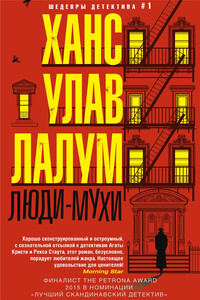
Убит бывший лидер норвежского Сопротивления и бывший член кабинета министров Харальд Олесен. Его тело обнаружено в запертой квартире, следов взлома нет, орудие убийства отсутствует. На звук выстрела к двери Олесена сбежались все соседи, но никого не увидели. Инспектор уголовного розыска Колбьёрн Кристиансен считает, что убийство, скорее всего, совершил кто-то из них. Более того, он полагает, что их показания лживы.
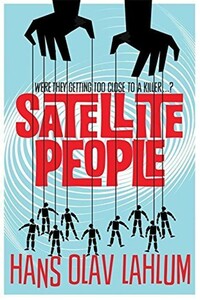
A gripping, evocative, and ingenious mystery which pays homage to Agatha Christie, Satellite People is the second Norwegian mystery in Hans Olav Lahlum's series. Oslo, 1969: When a wealthy man collapses and dies during a dinner party, Norwegian Police Inspector Kolbjorn Kristiansen, known as K2, is left shaken. For the victim, Magdalon Schelderup, a multimillionaire businessman and former resistance fighter, had contacted him only the day before, fearing for his life. It soon becomes clear that every one of Schelderup's 10 dinner guests is a suspect in the case.
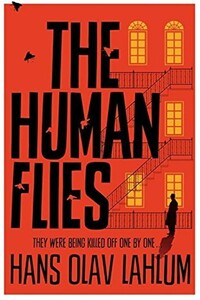
Oslo, 1968: ambitious young detective Inspector Kolbjorn Kristiansen is called to an apartment block, where a man has been found murdered. The victim, Harald Olesen, was a legendary hero of the Resistance during the Nazi occupation, and at first it is difficult to imagine who could have wanted him dead. But as Detective Inspector Kolbjorn Kristiansen (known as K2) begins to investigate, it seems clear that the murderer could only be one of Olesen's fellow tenants in the building. Soon, with the help of Patricia – a brilliant young woman confined to a wheelchair following a terrible accident – K2 will begin to untangle the web of lies surrounding Olesen's neighbors; each of whom, it seems, had their own reasons for wanting Olesen dead.
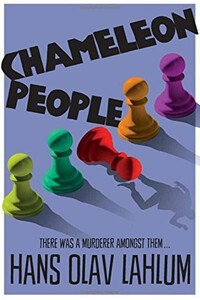
From the international bestselling author, Hans Olav Lahlum, comes Chameleon People, the fourth murder mystery in the K2 and Patricia series.1972. On a cold March morning the weekend peace is broken when a frantic young cyclist rings on Inspector Kolbjorn 'K2' Kristiansen's doorbell, desperate to speak to the detective.Compelled to help, K2 lets the boy inside, only to discover that he is being pursued by K2's colleagues in the Oslo police. A bloody knife is quickly found in the young man's pocket: a knife that matches the stab wounds of a politician murdered just a few streets away.The evidence seems clear-cut, and the arrest couldn't be easier.
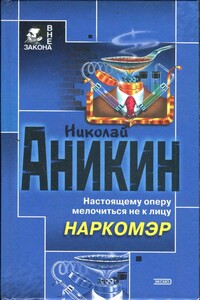
Тупик. Стена. Старый кирпич, обрывки паутины. А присмотреться — вроде следы вокруг. Может, отхожее место здесь, в глухом углу? Так нет, все чисто. Кто же сюда наведывается и зачем? И что охраняет тут охрана? Да вот эту стену и охраняет. Она, как выяснилось, с секретом: время от времени отъезжает в сторону. За ней цех. А в цеху производят под видом лекарства дурь. Полковник Кожемякин все это выведал. Но надо проникнуть внутрь и схватить за руку отравителей, наживающихся на здоровье собственного народа. А это будет потруднее…

«Посмотреть в послезавтра» – остросюжетный роман-триллер Надежды Молчадской, главная изюминка которого – атмосфера таинственности и нарастающая интрига.Девушка по имени Венера впадает в кому при загадочных обстоятельствах. Спецслужбы переправляют ее из закрытого городка Нигдельск в Москву в спецклинику, где известный ученый пытается понять, что явилось причиной ее состояния. Его исследования приводят к неожиданным результатам: он обнаруживает, что их связывает тайна из его прошлого.
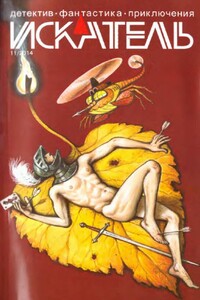
«ИСКАТЕЛЬ» — советский и российский литературный альманах. Издаётся с 1961 года. Публикует фантастические, приключенческие, детективные, военно-патриотические произведения, научно-популярные очерки и статьи. В 1961–1996 годах — литературное приложение к журналу «Вокруг света», с 1996 года — независимое издание.В 1961–1996 годах выходил шесть раз в год, в 1997–2002 годах — ежемесячно; с 2003 года выходит непериодически.Содержание:Анатолий Королев ПОЛИЦЕЙСКИЙ (повесть)Олег Быстров УКРАДИ МОЮ ЖИЗНЬ (окончание) (повесть)Владимир Лебедев ГОСТИ ИЗ НИОТКУДА.
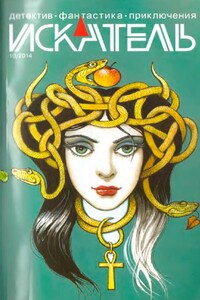
«ИСКАТЕЛЬ» — советский и российский литературный альманах. Издается с 1961 года. Публикует фантастические, приключенческие, детективные, военно-патриотические произведения, научно-популярные очерки и статьи. В 1961–1996 годах — литературное приложение к журналу «Вокруг света», с 1996 года — независимое издание.В 1961–1996 годах выходил шесть раз в год, в 1997–2002 годах — ежемесячно; с 2003 года выходит непериодически.Содержание:Олег Быстров УКРАДИ МОЮ ЖИЗНЬ (повесть);Петр Любестовский КЛЕТКА ДЛЯ НУТРИИ (повесть)
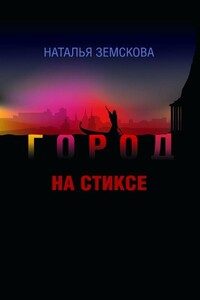
Наталья Земскова — журналист, театральный критик. В 2010 г. в издательстве «Астрель» (Санкт-Петербург) вышел её роман «Детородный возраст», который выдержал несколько переизданий. Остросюжетный роман «Город на Стиксе» — вторая книга писательницы. Молодая героиня, мечтает выйти замуж и уехать из забитого новостройками областного центра. Но вот у неё на глазах оживают тайны и легенды большого губернского города в центре России, судьбы талантливых людей, живущих рядом с нею. Роман «Город на Стиксе» — о выборе художника — провинция или столица? О том, чем рано или поздно приходится расплачиваться современному человеку, не верящему ни в Бога, ни в черта, а только в свой дар — за каждый неверный шаг.
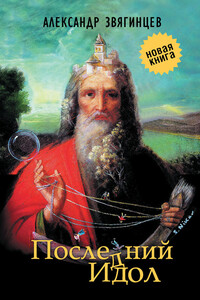
В сборник «Последний идол» вошли произведения Александра Звягинцева разных лет и разных жанров. Они объединены общей темой исторической памяти и личной ответственности человека в схватке со злом, которое порой предстает в самых неожиданных обличиях. Публикуются рассказы из циклов о делах следователей Багринцева и Северина, прокуроров Ольгина и Шип — уже известных читателям по сборнику Звягинцева «Кто-то из вас должен умереть!» (2012). Впервые увидит свет пьеса «Последний идол», а также цикл очерков писателя о событиях вокруг значительных фигур общественной и политической жизни России XIX–XX веков — от Петра Столыпина до Солженицына, от Александра Керенского до Льва Шейнина.